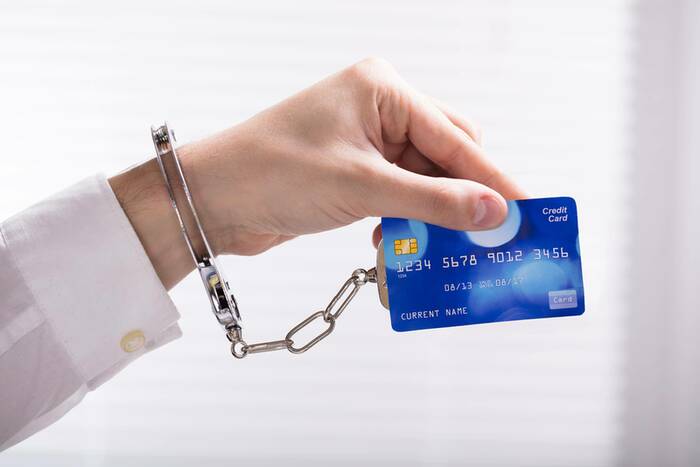
Being in debt can make you feel rather vulnerable, and sometimes, the last thing you want to do is address awkward or embarrassing questions regarding your management of it.
But you are not alone – with 1.7 million people seeking debt advice in the UK, and only 1.1 million people receiving it in 2016/17. So, if you have found yourself in challenging circumstances or just have questions unanswered, just know that there are plenty of other people seeking the same resolution and answers as you.
1. How much debt is too much debt?
This question can be quite intimidating as there are several different factors that this can depend on and will inevitably vary from person to person.
And the truth is – most people have debt.
Recent statistics from February 2018 show that £1.578 trillion is currently owed by UK individuals, meaning there is a £30,537 average amount of debt shared per adult in the UK.
With this in mind, how do we work out how much is too much?
Well, it is first important to consider the factors that come into play when determining whether or not you are over the threshold:
• Debt-to-income ratio (DTI)
This number will be a great indicator of the manageability of your debt and can provide insight into whether your debt is something that you can comfortably manage on your own.
To find out your DTI, you should work out your monthly repayments owed against your annual income and find out your percentage. Most financial advisors will suggest aiming for a DTI of less than 40%, particularly if you want to apply for a mortgage. This is due to percentages of 40% and over being considered high risk.
However, the lower the better – percentages 15% and below are considered a healthy debt load and affordable against your annual income.
• Good and bad debt
The ability to distinguish between good and bad debt is crucial in deciding whether your debt really is ‘too much.’
So, what is the difference?
Good debt encompasses anything where the interest rate is low, fixed, and is used as a means to purchase something that increases in value, such as a house or a business.
Bad debt, on the other hand, are those with higher interest rates and are used to purchase things that depreciate, or get used up, rather than increase. Examples include holiday loans and auto loans.
Is your debt too much?
Now that you have taken these factors into consideration, you can make an informed decision on whether your debt is affordable. If you have arrived at the conclusion that you may need to decrease your debt, and need advice on your next steps, then Step Change is a good place to start. You can gain access to expert debt advice and make a great first step in achieving a manageable debt load.

2. Can I be arrested for debt?
Whilst this may have been a reality for those living in the mid 19th century, it is not really something that would happen today.
Nonetheless, there are a select few types of debt that may result in imprisonment as a last resort if you consistently fail to repay:
• Criminal fines
• Council tax
• Business rates
• Child maintenance arrears owed to the CSA
3. How long can creditors chase me for?
By law, and for the majority of unsecured loans, creditors do not have the right to pursue you legally for anything more than 2 years. After the 6-year point, you will have what is called out of date debt, which are covered by the Limitation Act 1980.
However, it is important to note that this particular act only applies when the debt hasn’t been acknowledged by yourself or the creditor for 2 years.
There’s more…
Even though the creditor cannot pursue you legally after this point, the debt does still exist and so they can still chase you to recover the outstanding debt. The only difference is that they are not allowed to use legal proceedings to do so.
4. What will happen to my debt if I pass away?
Following someone’s passing, there will be a probate. This is the process of paying any of their outstanding bills and distributing what remains of their assets. For example, this could mean that their assets will have to be sold in order to access the money to settle any debts. However, if there is not enough available to cover the debt, then creditors are not left with much option, but to close the debt.
Could the debt be passed down to my family?
In some cases, however, it may become a family members responsibility to settle the debt. For example, if a family member has co-signed onto any of the deceased accounts that have attached debt, it automatically becomes their responsibility.
In regard to marital debt, the surviving spouse is liable for any outstanding debt.
5. If I get married, do I also become financially liable for their debt?
Put simply, no.
Unless the debt has been signed with both your names in a joint debt agreement, then you are not legally-binded to the contract.
Will their debt affect my credit score?
If you have taken out a joint loan agreement and your spouse’s credit score is low, then it can potentially affect yours too.
However, you can always contact a credit reference agency and ask for a Notice of Disassociation. This will separate any association between the two of you, and you should be assessed individually again.
A lot of people tend to worry that marriage will complicate their financial situation, when it can be the exact opposite. There are actually several reasons why you should consider marriage or civil partnership for financial security such as capital gains and no inheritance tax.
6. If I get a divorce, who becomes responsible for the debt?
Divorce can be an unpleasant process. There can be a line of back-to-back meetings, and difficult decisions have to be made about a number of different things – including debt.
Responsibility for debt following a divorce is not entirely straightforward. You must first identify the type of loan agreement that is in question and identify whether it is your name printed on the loan contract, or whether your spouse has co-signed it with you.
If it is a joint contract, then the lender has made an agreement with two people. This means that the responsibility is shared amongst both spouses, and nothing in your divorce agreement can change that.
Can I remove myself from the loan?
It can cause a number of problems for you if anything did potentially happen to your ex-spouse and your name was still on the loan agreement. Therefore, it would be a smart move attempting to remove yourself from the loan agreement that your ex-spouse is required to repay.
Even though the majority of lenders will not willingly remove you from the contract, it is always worth asking if it could be an option. If they are receptive, they are likely to review your ex-spouses’ credit and annual income to measure the risk and affordability of the loan. If it is manageable for one person, and poses no risk to the lender, they might consider it.
7. When do I declare bankruptcy?
Bankruptcy is a daunting proposition, but it may feel like the only solution when you can’t repay your debts.
However, knowing when to file for bankruptcy can be even more taxing. It is important to ask yourself the following questions before you even consider it an option:
Are debt collectors chasing you?
Have you lost track of how much you owe?
Is your debt affecting your mental health and wellbeing?
Are you unemployed?
Are your assets of little value?
Can you see your situation getting worse?
If you answered yes to all of these questions, then it may be a potential option for you.
Are there other options?
Bankruptcy should be a last resort - If you are struggling to pay off your debt then there may be alternatives that you just haven’t thought of including:
• A debt management plan (DMP)
A DMP is an informal agreement that is signed between your creditors and yourself whereby you consent to repaying your debt in reduced monthly payments, so that it is more affordable to manage.
• Administration Orders
An administration order is a legal arrangement issued by a County Court, that allows you to repay only what you can afford each month. This number will be agreed to after priority expenditure such as living costs have been accounted for.
• Debt consolidation loans
A debt consolidation loan is a smart way of downsizing your debt. You compile your debt from multiple sources and merge it into one affordable debt load. The most attractive feature of a debt consolidation loan is its ability to lower your overall debt as you will be paying a lower interest rate.
So, before you decide to declare bankruptcy, have a look into other available options. Gov is a great place to start – simply fill in a few questions on this page and find out what your options are.
More Information
If you still have any burning questions then be sure to refer to our guides and blog page, as we may have already answered the question you are looking for.
On the other hand, if it is specifically debt advice you are looking for then National Debtline and Money Advice Service have some great tools to support your needs.